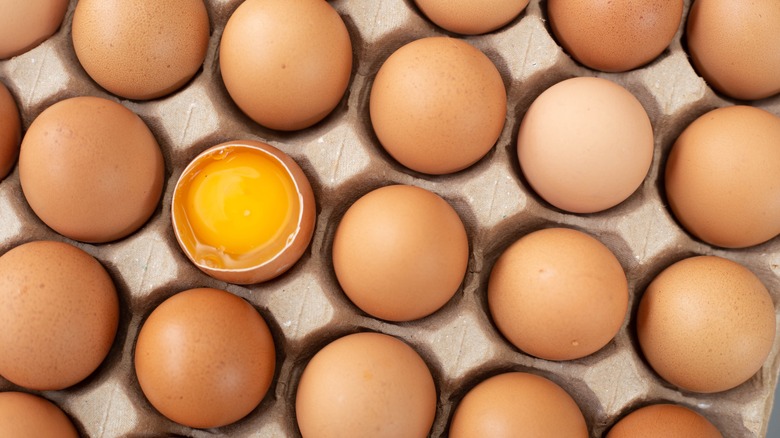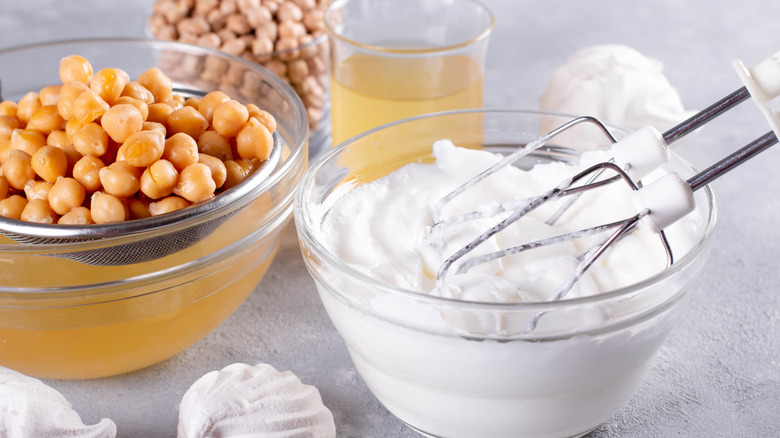Scientists Are One Step Closer To Allergen-Free Eggs
Egg allergies are one of the most common food allergies among young children, alongside milk and peanut allergies. In adults, egg allergies aren't as common, with most children who have an egg allergy growing out of it by their teenage years. Still, with severe symptoms including anaphylaxis, egg allergies are nothing to take lightly. Luckily, scientists are one step closer to developing an allergen-free egg.
In May 2023, news broke that Japanese scientists had developed the first chicken egg that doesn't contain ovomucoid. Allergy sufferers who are specifically allergic to ovomucoid in eggs can't eat anything that contains eggs, even if the eggs have been cooked. Other allergens in eggs can be cooked until they break down, making some egg-containing foods safe for allergy sufferers to eat, but that's not the case with ovomucoid. But how did they manage to create eggs with no ovomucoid?
"Researchers from Hiroshima University and Japanese mayonnaise maker Kewpie Corp. used cutting-edge genome editing technology to remove a gene responsible for making an allergen called ovomucoid in chicken," Bloomberg reported. "Those hens laid safe, ovomucoid-free eggs and the editing process didn't affect other genes." The scientists have yet to test their ovomucoid-free eggs for human consumption, but they're actively working to see how the egg behaves in certain situations and hope it will give allergy sufferers more options.
What to do until allergen-free eggs are on store shelves
Unfortunately, getting a new product from research and development to store shelves can take years, so don't expect to see these allergen-free eggs in your local grocery shop anytime soon. If you or someone you cook for can't eat eggs, you'll need to continue relying on old stand-in methods to effectively replace eggs when cooking or baking.
Luckily, there are loads of egg substitutes to try. Mashed bananas and applesauce can add extra moisture to baking recipes that would normally require eggs. Creamy nut butters can act as replacement binding ingredients. If you're making a meringue, the favorite egg replacement is aquafaba — which is just a technical term that applies to the cloudy liquid leftover in your can of chickpeas.
For baking recipes that use eggs as a leavening agent, try carbonated water or a mixture of vinegar and baking soda. Just remember that not all egg replacements will work for every recipe. For example, while a mixture of water, veggie oil, and baking powder is a popular egg replacement when you have little else on hand, this swap can make for a very oily or fragile cake if you're not careful.

